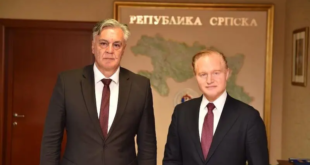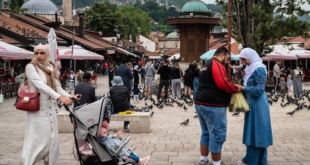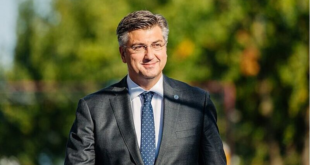Even after its apparent failure, an EU and US initiative to end Bosnia’s political impasse is still fostering confusion and tensions among local and international leaders as they search for a way out of the crisis.
With senior EU officials scheduled to meet in Luxembourg to discuss the situation in Bosnia on Monday, local leaders continued to launch verbal assaults against each other over whether and how these crucial talks should continue.
Talks on the initiative, which was launched out of the blue by US Deputy Secretary of State James Steinberg and Carl Bildt, the foreign minister of Sweden – which currently holds the rotating EU presidency – ended last week without an apparent result.
Even after three rounds of talks, held at the Butmir military camp near Sarajevo on October 9, 20 and 21, most Bosnian leaders refused some or all parts of a proffered package.
The package consisted of a set of requirements for continued constitutional reform and the fulfillment of remaining conditions for the closure of the Office of the High Representative. In return, the EU and US offered inclusion in the former’s visa-free regime, to fast-track Bosnia’s NATO membership and even offered the status of an EU candidate country.
Yet, six of seven local leaders refused the proposal. For Bosnian Serbs, the package appeared to be too demanding, Bosnian Croats said it further weakened their position, while some Bosniak (Bosnian Muslim) ruling and opposition parties said the proposed changes were merely cosmetic and failed to meet minimum requirements. Only the president of the ruling Bosniak Party of Democratic Action, SDA, Sulejman Tihic, tentatively accepted the package. He said his acceptance was motivated by fear that a failure could lead to new tensions, a crisis and even conflict.
On the other hand, Bildt, Steinberg and other international officials appeared strangely optimistic. They said that local leaders had made significant progress and stressed that the talks would continue on a technical level in following weeks.
This notion was flatly rejected by Milorad Dodik, the president of the strongest Bosnian Serb party, the Alliance of Independent Social Democrats, SNSD, and premier of the Serb-dominated Bosnian entity of Republika Srpska.
During and after the talks, Dodik was the most outspoken in criticising the initiative and package, saying that it was a violation of the Dayton peace accord and, as such, unacceptable even as a basis for further talks.
Dodik told reporters that the Butmir talks were “an unnecessary adventure” and that, for him, the “Butmir process does not exist”.
Over the weekend, he invited representatives of all main parliamentary parties to come to Banja Luka to meet and discuss how to overcome political deadlocks, without the involvement of international officials.
Predominately Bosniak parties, such as the SDA, and Party for Bosnia and Herzegovina, refused the invitation and stressed they would not meet Dodik without the presence of western diplomats. The main opposition Social Democratic Party, SDP, also rejected the invitation, saying that the ruling parties alone should resolve the mess they have created.
“I believe that even you understand that it is a high time for you, as the leader of the current leadership, to change your years-long policy, or you yourself will be changed,” SDP leader Zlatko Lagumdzija said in an open letter to Dodik sent Monday.
Only the Croat Democratic Union said that it would participate at this or any other constructive meeting.
At the two-day Luxembourg parlay, Bildt and EU enlargement commissioner Olli Rehn will brief EU foreign ministers on the Butmir talks and discuss the way forward, EU diplomats told the Balkan Insight.
 Eurasia Press & News
Eurasia Press & News



